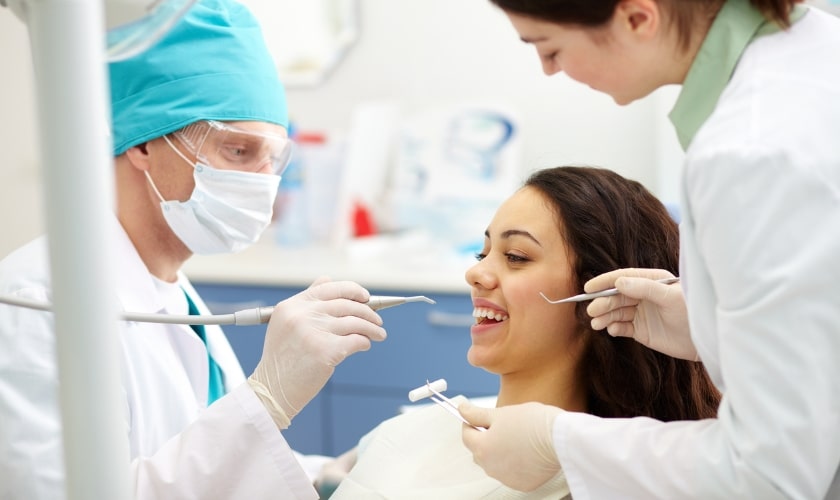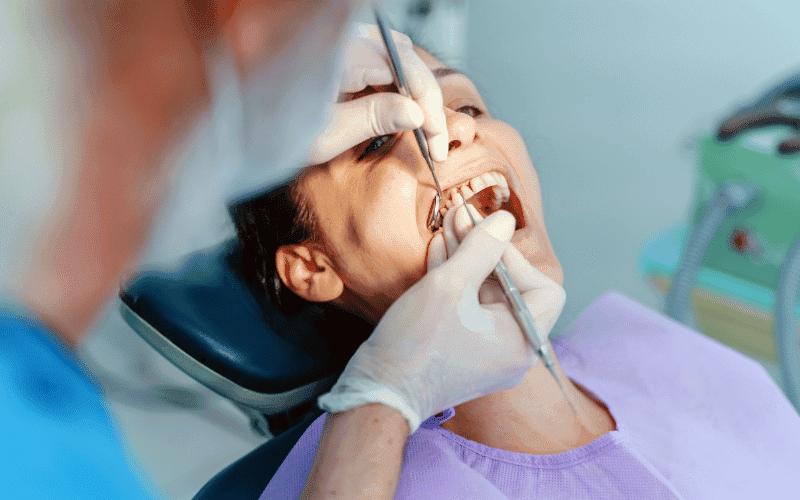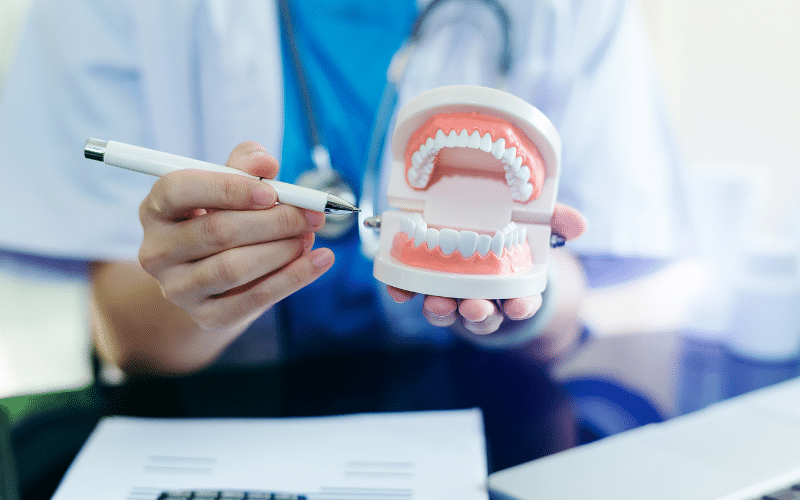ONLINE SCHEDULING AND VIRTUAL CONSULTS AVAILABLE

Recovery Tips And Mistakes To Avoid After Oral Surgery

A mix of anticipation and apprehension often accompanies the decision to undergo oral surgery. Whether it’s wisdom tooth extraction, dental implant placement, or corrective jaw surgery, the aftermath involves a crucial period of recovery. Navigating this phase with precision is vital for minimizing discomfort and ensuring a swift return to normalcy. In this comprehensive guide, we’ll delve into essential recovery tips and shed light on common mistakes to avoid after oral surgery. Your journey to optimal healing begins here.
The Importance of Post-Oral Surgery Care
Oral surgery in Plantation, FL, is a medical procedure that involves the manipulation of delicate oral structures, such as teeth, gums, and jawbones. While advancements in dentistry have made these surgeries routine, it’s essential to recognize that the success of the procedure extends beyond the operating room. The postoperative period, often overlooked by patients eager to put the surgery behind them, plays a pivotal role in determining the overall outcome.
The intricacies of oral surgery lie in the interconnected web of tissues, nerves, and bone structures that make up the oral cavity. Any disruption caused by surgery, whether it’s a tooth extraction or a more complex procedure like jaw realignment, requires a carefully orchestrated healing process. This is where post-oral surgery care steps into the spotlight.
Recovery Tips
Follow Your Dentist’s Instructions Religiously: Your dentist in Plantation, FL, will provide you with specific postoperative instructions. These may include guidelines for medication, dietary restrictions, and oral hygiene practices. Adhering to these instructions is non-negotiable for a smooth recovery.
Manage Pain Effectively: Pain is a common aftermath of oral surgery. Ensure you take prescribed pain medication as directed by your dentist. Over-the-counter pain relievers may be recommended, but always consult with your dentist before adding any new medications.
Optimal Oral Hygiene: Maintaining oral hygiene is paramount during the recovery period. Your dentist may provide a special mouthwash or suggest a gentle saltwater rinse. Follow these instructions diligently to prevent infections and promote healing.
Stay Hydrated: Drinking plenty of water is essential for recovery. It aids in flushing out toxins, prevents dehydration, and supports overall healing. However, use a straw cautiously, as its improper use can disrupt the healing process.
Rest and Relaxation: Physical activity should be limited during the initial days post-surgery. Allow your body the time it needs to heal by getting sufficient rest. Avoid strenuous activities that could impact the surgical site.
Common Mistakes to Avoid
While the road to recovery after oral surgery may seem straightforward, there are common pitfalls that patients often encounter. Awareness of these potential missteps is crucial for ensuring a smooth and uneventful healing process. Here, we explore the common mistakes that should be diligently avoided to optimize your post-oral surgery recovery:
Skipping Medications
One of the most prevalent mistakes is neglecting prescribed medications. Pain management is a vital component of the recovery process, and your dentist will likely provide specific medications to alleviate discomfort and reduce inflammation. Skipping doses or prematurely discontinuing medication can lead to increased Pain, delayed healing, and even complications. It’s essential to adhere to the prescribed medication schedule and, if necessary, consult your dentist before making any adjustments.
Ignoring Signs of Infection
Infections are a potential risk after oral surgery, and ignoring the signs can have serious consequences. Persistent Pain, swelling, redness, or the presence of unusual discharge could indicate an infection. Rather than dismissing these symptoms, it is crucial to communicate with your dentist promptly. Timely intervention can prevent the infection from escalating and ensure a more straightforward resolution.
Premature Resumption of Normal Diet
Your dentist will provide dietary guidelines tailored to your specific surgery. These recommendations are not arbitrary; they are designed to protect the surgical site and promote optimal healing. Ignoring these guidelines and prematurely resuming a regular diet, especially one that includes hard, crunchy, or spicy foods, can disrupt the healing process and increase the risk of complications. It’s imperative to follow the dietary instructions provided by your dentist to support a seamless recovery.
Inadequate Oral Hygiene
Maintaining oral hygiene is a cornerstone of post-oral surgery care. Inadequate cleaning can contribute to infections and compromise the healing process. While it’s crucial to keep the surgical site clean, it’s equally important to follow your dentist’s recommendations for gentle cleaning. Using regular toothpaste or aggressive brushing too soon after surgery can irritate the surgical site. Adhering to the prescribed oral hygiene routine is vital for preventing complications and promoting optimal healing.
Mastering the art of recovery after oral surgery involves a combination of diligence, patience, and adherence to professional advice. By following these recovery tips and steering clear of common mistakes, you pave the way for a seamless healing process. Remember, your dentist is your ally in this journey, and regular communication is key. As you embark on the road to optimal oral health, let these guidelines be your compass, guiding you through the intricate terrain of post-oral surgery care. Your radiant smile awaits, and with the right care, it will shine brighter than ever before.





